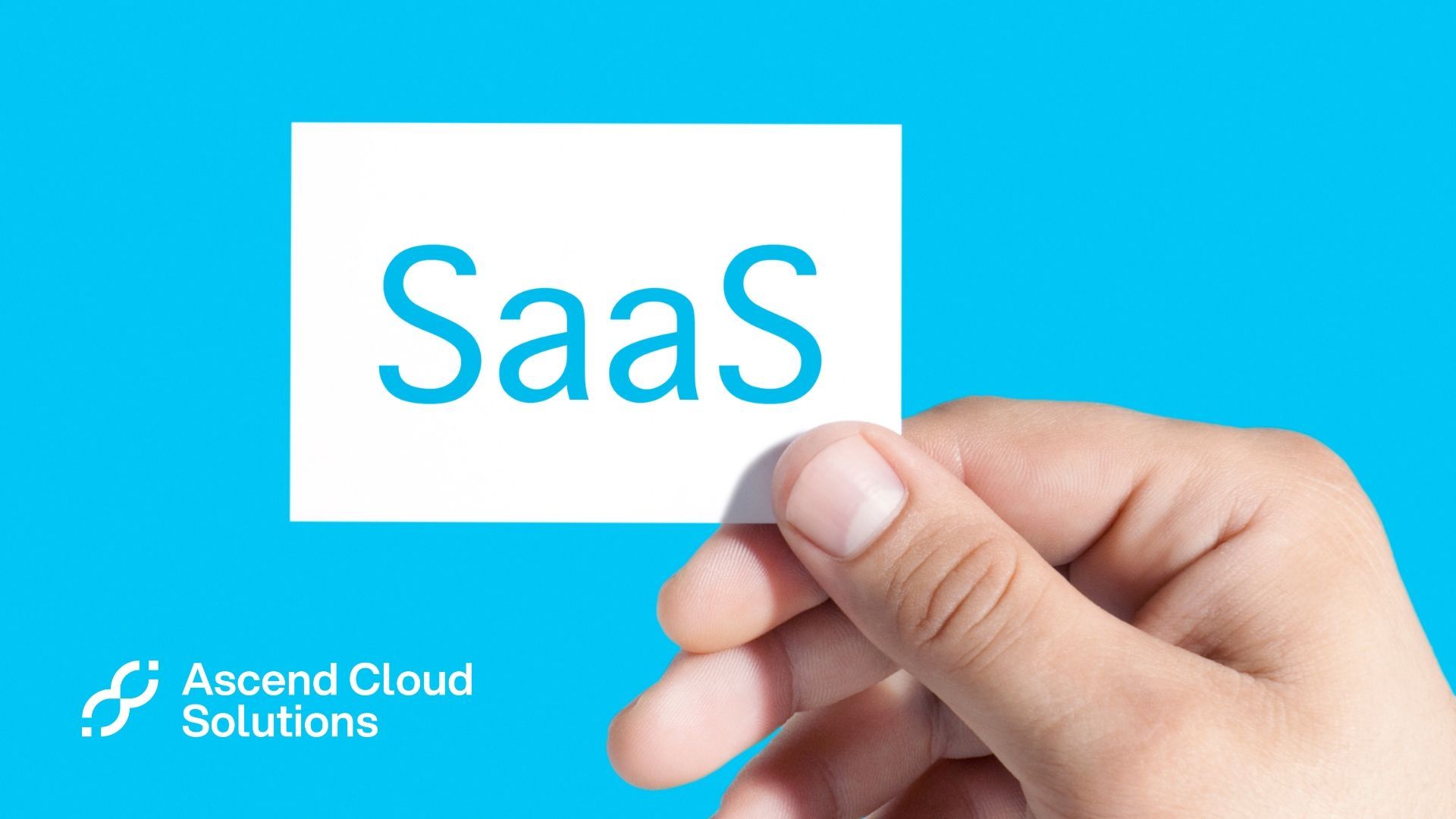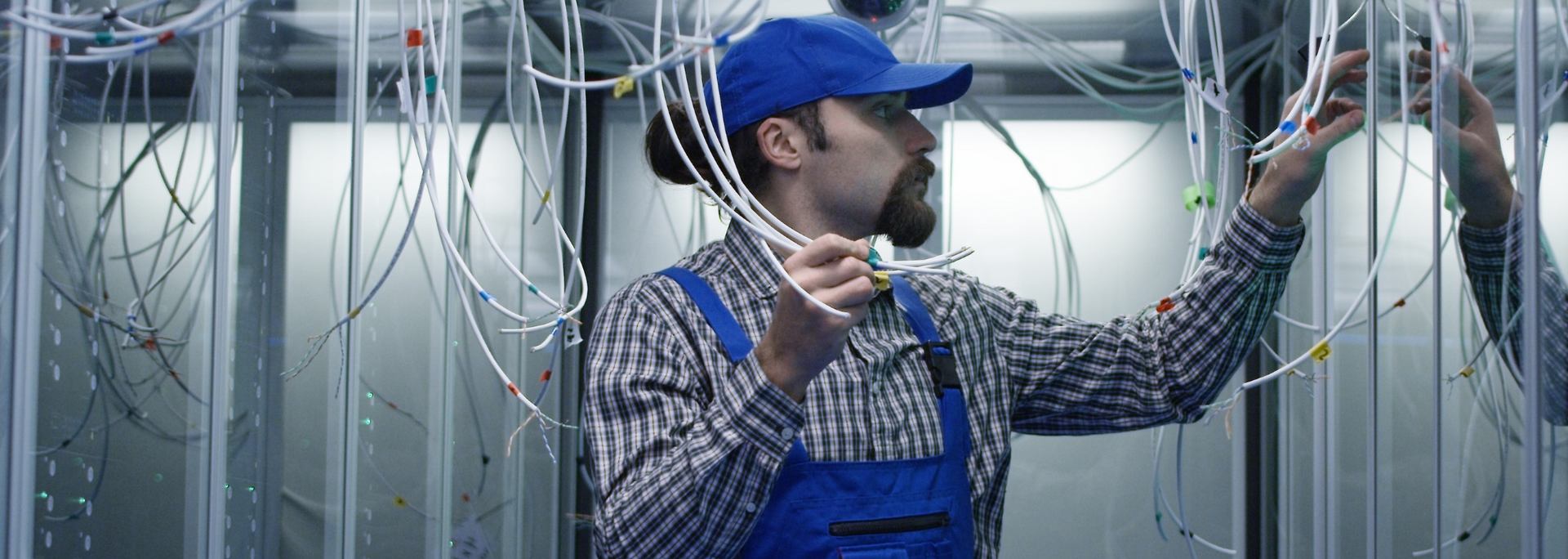Can you build an empire on SaaS alone?
Today, most companies use SaaS, regardless of their size. But can a company thrive on SaaS alone? Join us as we compare SaaS and IaaS solutions.

Do you use SaaS? If you're reading this blog, the answer is probably "yes", even if you're not consciously aware of it.
Nowadays, pretty much every company uses SaaS or "software-as-a-service" of some kind. This holds true for high street brands as well as the local cafe or hardware store. Cloud-based software is increasingly the norm, be it Gmail, a cloud-based payment processor or online payroll software.
At its most basic, SaaS refers to any piece of software that can be accessed remotely online, from any device in any location. It covers everything from Dropbox to Adobe Express, from niche design programs to mainstream games.
But if you're building your business empire, can you do it on SaaS alone? Or do you need to fill out your cloud solution with IaaS, or "infrastructure-as-a-service?" To answer that question, let's first look at what SaaS is good for.
What's so good about SaaS?
SaaS is a middle-man – or, to use a more homely metaphor, it's the filling that holds two pieces of bread together. On the bottom is the data centre that runs the software and on top is the end user.
If you're using SaaS, that software is most likely being run on a data centre that's owned and maintained by one of the big dogs of the cloud provider world – AWS, say, or Google Cloud.
You're probably not thinking about that data centre when you log into your Netflix account or Salesforce app – no more than you're thinking about gas pipelines when you turn on your hob.

Nevertheless, these cloud-based solutions in all their variety can exist only because of an infrastructure – one which, crucially, you don't run. You subscribe to the software, but the software itself is run by digital elves in a data centre far, far away.
Why, though, is this such an attractive offering for consumers and businesses alike? There are a couple of reasons. The first is that you don't have to run and maintain your own servers.
From a consumer point of view, you just want to play your favourite songs on Spotify. You don't want to lift the hood and examine the backend.
The same can apply to businesses – you get the software without the responsibility of maintaining and upgrading it.
The other reason – one that applies only to the business world – is that it simplifies the roles and responsibilities of your IT department. Using SaaS means you don't need staff to download and install apps on every employee's computer. Any technical issues are resolved by the vendor, not your in-house technicians.
These benefits make SaaS ideal for startups and small companies that want to make their mark quickly and don't have the mental bandwidth to install servers just yet. It's also ideal for apps that get used only now and then.
But as companies grow, a SaaS-only way of working can become limiting. It's at this point of expansion that many businesses investigate IaaS.
What is IaaS?
Where SaaS delivers software, IaaS delivers cloud computing infrastructure. That means all the stuff that's hidden from us when we use SaaS – things like servers, networks, operating systems and storage.
With IaaS, these functions are under your control again. They're "virtualised", meaning that they're presented to you in digital form – imagine a dashboard where you can see all the innards of your infrastructure and you're not far off.
The main selling point of IaaS is that you get the functionality of an old-school data centre, but you don't have to faff about uncoiling cables and fixing servers when they go on the blink.

With SaaS, the IT technician is sidelined. But with IaaS, a company needs a skilled employee on hand to ensure the smooth running of its workloads in the cloud.
When should you use IaaS?
Just as a market stall holder may not need SaaS, so some businesses can probably do without IaaS. It tends to be rolled out in specific situations.
For instance, if you're a startup or small company on a budget, you might want a virtualised infrastructure rather than shelling out on hardware and software.
Or you could be a bigger company that wants to retake control of its apps and infrastructure but doesn't want a bulky server taking up time and energy in the backroom. With IaaS, you can pay only for what you use. It's the difference between filling up the tank at a petrol station and drilling your own oil well.
IaaS can also be a promising solution for companies that are rapidly scaling up and need flexibility. IaaS lets you swap out hardware and software as your needs and priorities change. It's super easy to roll out different networks, storage solutions and servers – and it's highly scalable, too.
What are the limitations of IaaS?
Nothing is perfect, alas, and IaaS shares with SaaS (and PaaS) some limitations which you should be aware of before committing to deployment.
First, there's the "cloud-native" problem. An app that's in development at the time of writing will be cloud-native, built in and for the cloud. But your apps may have been developed before the cloud even existed, in which case you're trying to fit an antique clutch into a modern vehicle. This means you have to spend time, money and energy on making your apps cloud-friendly before migrating them.
Secondly, there's the "vendor lock-in" problem. It can be challenging to switch from one IaaS provider to another – and while you have more control over your infrastructure in theory, you also have to deal with any changes that the provider makes.
Finally, there's the problem of integration. It's not always easy to integrate your existing workflows with a new IaaS solution. However, in many situations, it's worth the effort.
Final thoughts
One of the best things about cloud solutions is that they're flexible. There's no one-size-fits-all solution. Some companies can thrive on SaaS alone – but others will need to investigate IaaS.
On a bad day, this flexibility can lead to analysis paralysis. If that's something you're experiencing,get in touch– we'd love to talk you through your options.
Based in Cork, Ireland, Ascend provides a range of
cloud solutions– including VMware consultancy and managed cloud migration.












